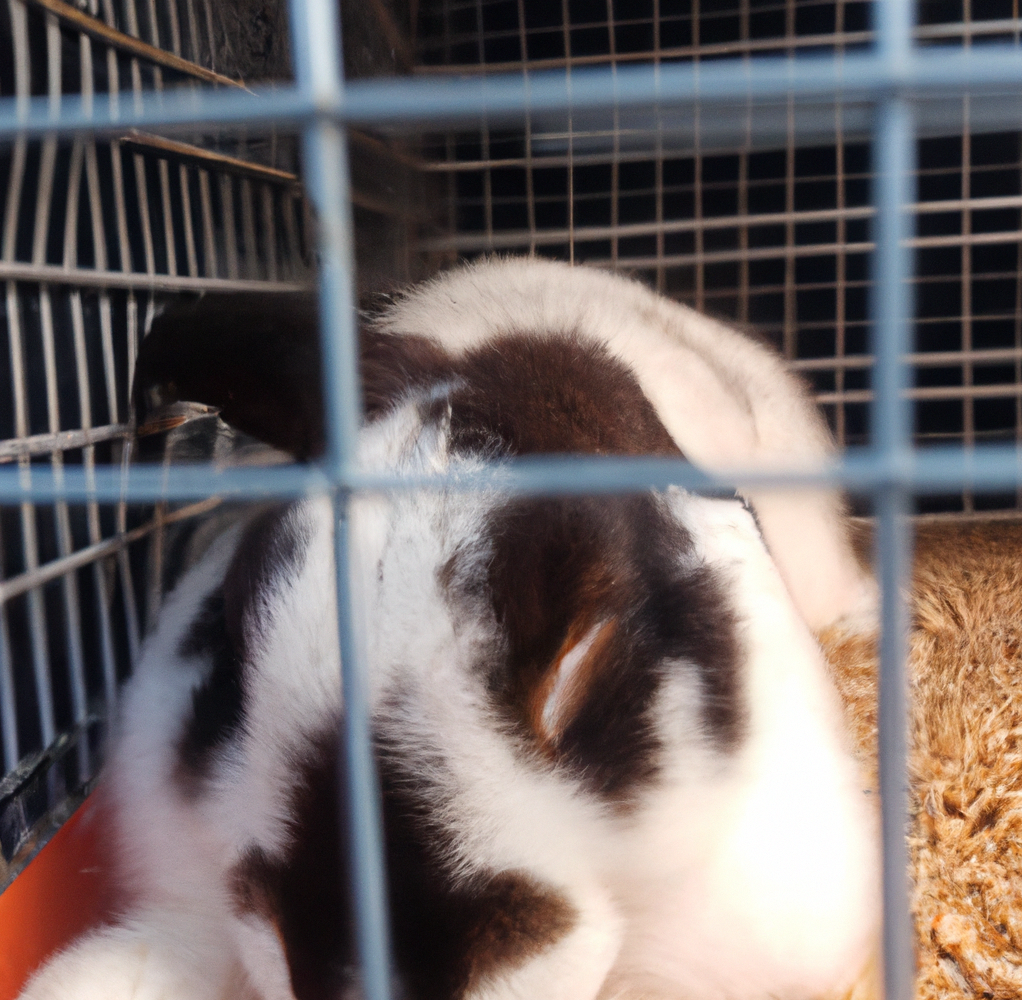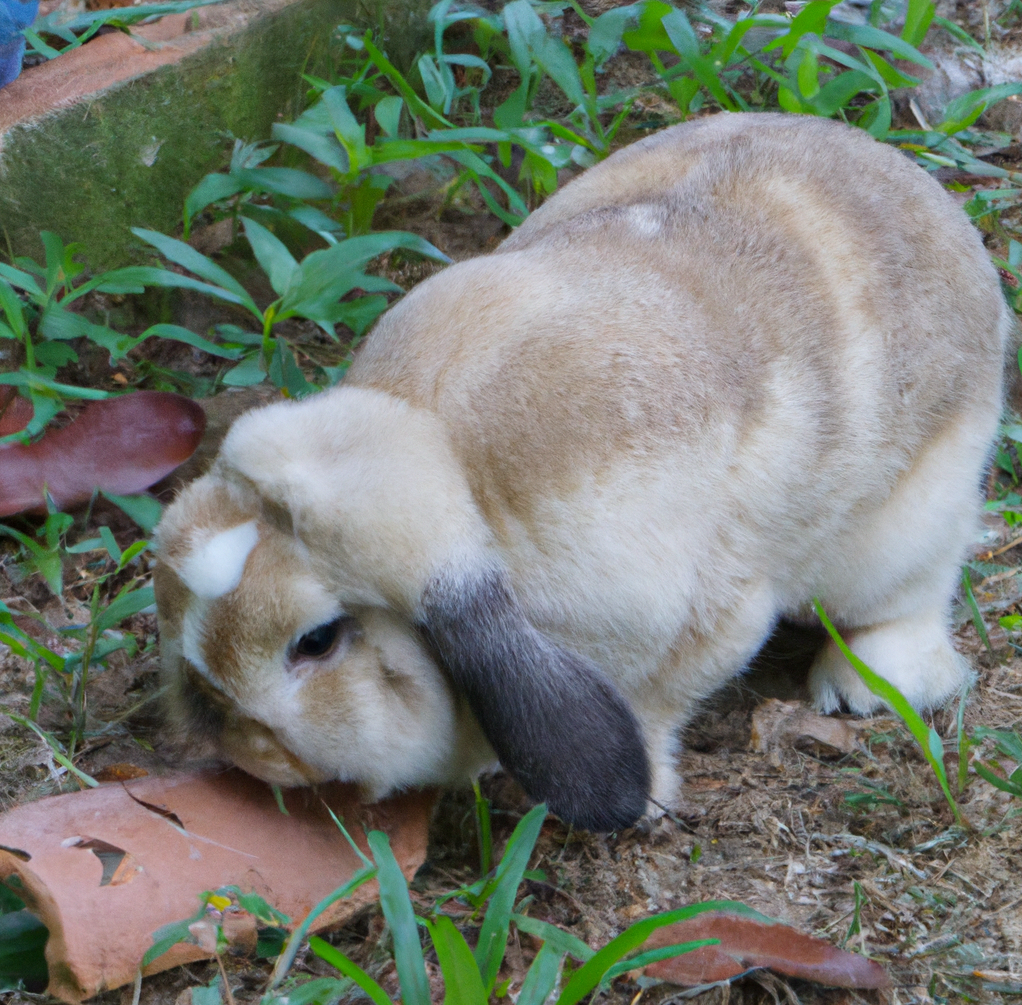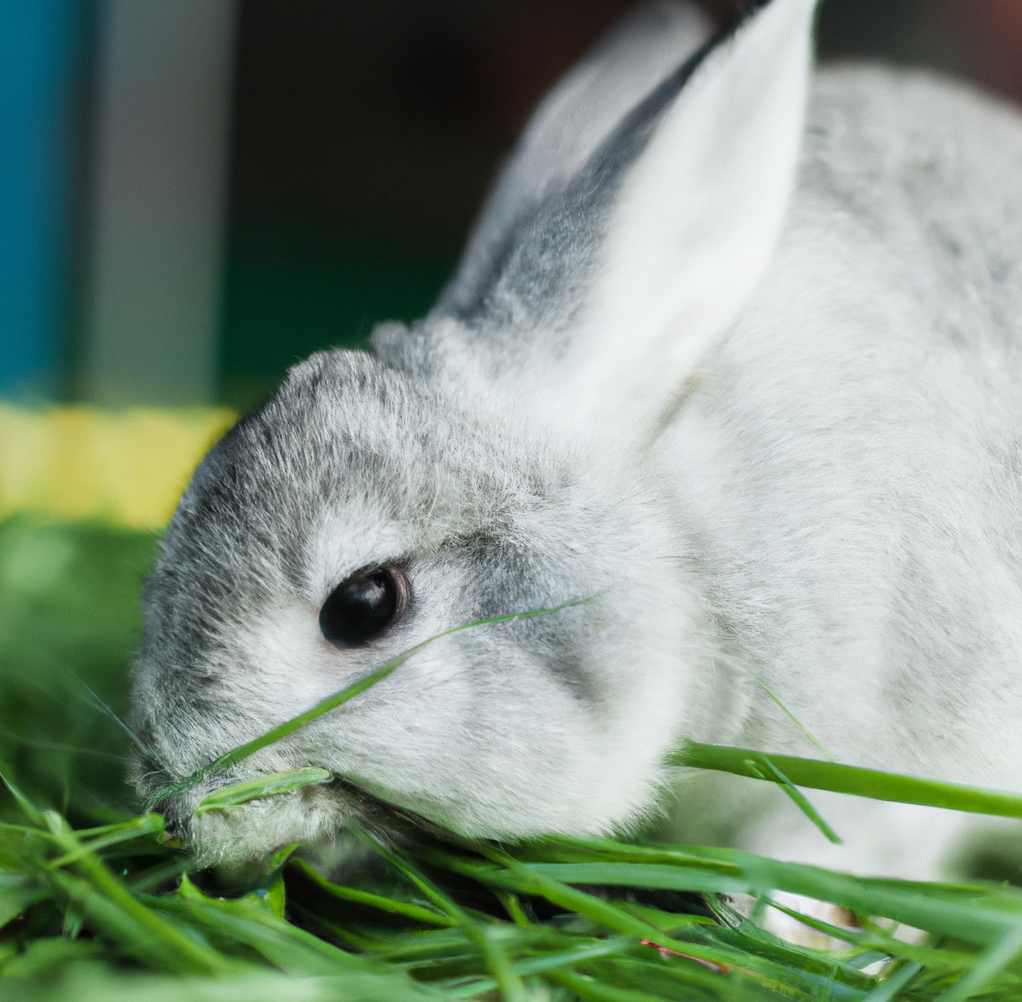Do rabbits have different personalities? That is a question many rabbit owners ask. It’s no surprise that rabbits can have different personalities, as they are intelligent, social animals. Just like humans, rabbits have individual personalities that are affected by their experiences, genetics, and environment. In this article, we will explore the various types of rabbit personalities and the factors that shape them. We’ll also discuss how to identify and nurture each personality type and how to use this knowledge to better understand and care for your rabbit.
Do Rabbits Have Unique Personalities?
Yes, rabbits do have unique personalities. Rabbits can be playful and friendly, or skittish and aloof. However, each rabbit’s personality is determined by its individual genetics and environment.
Rabbits are social animals, and their personalities can be influenced by how they are treated by their owners. If a rabbit is regularly handled, it will be more likely to be friendly and trusting of people. On the other hand, if a rabbit is not handled often, it will be more likely to be shy and skittish. Some rabbits can also be more active and curious than others, depending on their individual personality.
Rabbits can also show signs of stubbornness and mischief, such as chewing furniture or digging up plants. This is a natural behaviour for rabbits and is usually not a sign of aggression.
Overall, rabbits can have unique personalities that are shaped by their environment and genetics. Knowing your rabbit’s individual personality can help you create a safe and enjoyable environment for it.
Exploring the Different Personality Types of Rabbits
Rabbits are beloved family pets due to their gentle nature and adorable personalities. While all rabbits share some common traits, their individual personalities can vary greatly. To better understand the different types of personalities that rabbits can have, it is important to get to know the various rabbit breeds, as well as their individual temperaments.
The most popular breed of rabbit is the Dutch rabbit, which is known for its friendly, outgoing personality. These rabbits are sociable and usually enjoy being around people. They make great pets for families with children, as they tend to be very tolerant of being handled. The Dutch rabbit is also highly intelligent and loves to play with toys and learn tricks.
The Holland lop is another popular breed of rabbit. These rabbits are very active and energetic. They love to explore their environment and investigate new objects. They can be quite mischievous and enjoy playing games with their owners. Holland lops are also known for being quite vocal, making them an excellent choice for people looking for an interactive pet.
The Mini Rex is an incredibly sweet-natured rabbit that loves human attention. They are very calm and gentle, making them ideal for those who want a more low-key pet. Mini Rex rabbits are also affectionate and love to be cuddled.
The Lionhead rabbit is a social butterfly that loves to be around people. They are very curious and playful, often running around and exploring their environment. Lionhead rabbits are also known for their vocalizations, making them a great choice for those interested in an interactive pet.
Lastly, the Netherland Dwarf is a breed of rabbit that is known for its playful and mischievous personality. These rabbits are incredibly active and love to explore their environment. They are also very curious, making them an ideal pet for those looking for a pet that is more interactive.
No matter what breed of rabbit you own, it is important to remember that each individual has its own unique personality. By taking the time to get to know your rabbit, you can better understand their individual characteristics and needs. With a bit of patience and love, you can develop a strong bond with your pet that will last for years to come.
Understanding Rabbit Behavior: How Does Personality Play a Role?

Rabbit behavior is complex and often misunderstood. While some aspects of their behavior can be attributed to environmental factors, research has shown that personality plays a significant role in determining how a rabbit will behave.
Rabbits have distinct personalities that can be characterized as either bold or shy. A bold rabbit is more likely to be exploratory, adventurous, and outgoing. They are often the first to leave their burrows and try new things. By contrast, a shy rabbit tends to be more cautious and timid. They may stay in their burrow longer and be hesitant to explore new environments.
Aside from personality type, other traits that have an impact on a rabbit’s behavior include energy level, curiosity, and sociability. Rabbits that are higher energy may be more active and playful, while those with lower energy may be more tranquil and relaxed. Curios rabbits tend to explore and investigate their surroundings, while those that are less curious may seem aloof and uninterested. Sociable rabbits may approach humans and other animals, while those that are more solitary may stay away from people and animals.
Rabbits that have a combination of these traits can be more challenging to predict, as their behavior may be more unpredictable. However, with proper care and understanding, rabbits can learn to trust their owners and develop healthy relationships.
In conclusion, personality plays an important role in determining a rabbit’s behavior. Understanding the individual traits and characteristics of each rabbit is essential to providing them with the best possible care. With proper knowledge and care, rabbits can become loyal and affectionate companions.
What to Expect from a Rabbit’s Personality
Rabbits are gentle and sociable animals that can make great pets for individuals or families. Rabbits have individual personalities and can be quite friendly. Many rabbits enjoy being petted and handled, although some may take a bit longer to warm up to humans.
Rabbits tend to be quite active, often running, hopping, and playing around their living space. They also have an inquisitive nature and enjoy exploring and investigating their environment. Rabbits may even try to make their own fun by chewing and digging in places they’re not supposed to!
Rabbits are also known to be quite vocal. They may make a variety of noises, including honks, grunts, and squeals. These sounds can be used to communicate with one another and with humans.
Rabbits are generally social animals and may even become attached to their human family. They may become fond of certain people and may even look forward to interacting with them. Some rabbits even learn to recognize their owner’s voice and respond to it.
It is important to remember that rabbits can be easily startled and scared by loud noises or sudden movements. It is important to handle them gently and to give them the time they need to adjust to their environment and new people.
Overall, rabbits can make great companions. With patience, love, and proper care, they can become loving, loyal, and entertaining pet.
The Surprising Ways Rabbits Show Their Individuality

Rabbits often surprise us with their distinct personalities and individual preferences. Although they may seem like timid animals, they are capable of exhibiting a wide range of behaviors that demonstrate their unique identities. Here are some interesting ways that rabbits show their individuality:
First, rabbits can be picky eaters. Although they usually prefer hay and vegetables, some rabbits may prefer particular types of food over others. It is not uncommon for rabbits to display a preference for one type of vegetable over another. This is why it is important to provide them with a variety of healthy food options.
Second, rabbits can be vocal. Different rabbits may have different vocalizations that they use to communicate with each other and with their owners. Some rabbits may be very vocal, while others may be more subdued. By observing your rabbit’s vocalizations, you can gain insight into their individual personalities and preferences.
Third, rabbits can be very active. Some rabbits may prefer to run around and explore their environment, while others may be content to stay in one place. Additionally, some rabbits may display different levels of energy depending on the time of day or their mood.
Finally, rabbits can be social. Some rabbits may be more outgoing and enjoy interacting with their owners or other animals, while others may be more reserved and prefer to be left alone. Rabbits may also form bonds with certain people or animals in their environment.
Overall, rabbits offer us a glimpse into the fascinating world of animal behavior. By observing their individual preferences and behaviors, we can gain insight into the unique personalities of these special animals.
Tips for Bonding with Your Rabbit & Unlocking its Personality
1. Get your rabbit used to being handled: Get your rabbit accustomed to being handled by picking them up and moving them around. Start with short sessions and gradually increase the amount of time you spend handling your rabbit.
2. Create a safe environment: Provide your rabbit with a safe environment that they can explore. Give them plenty of space and make sure they have a few hiding places. This will make them feel secure and help bond with you.
3. Spend time with your rabbit: Make sure to spend time with your rabbit every day. This will help build trust between you and your rabbit. Talk to them and give them a chance to get to know you.
4. Play with your rabbit: Spend time playing with your rabbit every day. Get some toys that they can play with or make some of your own. This will help keep them active and help them bond with you.
5. Give treats: Give your rabbit treats as a reward for good behavior. This will help reward them for positive behaviors and help them bond with you.
6. Offer affection: Offer your rabbit plenty of affection. Pet them and give them lots of love and attention. This will help your rabbit to trust you and bond with you.
7. Make sure they have plenty of space: Make sure your rabbit has plenty of space to explore and play. This will help keep them mentally stimulated and help them to bond with you.
8. Introduce other rabbits: If possible, introduce your rabbit to other rabbits. This will help them to interact with other animals and help them bond with you.
9. Spend time outdoors: Take your rabbit outdoors for a bit of fresh air. This will give them a chance to explore and help them to bond with you.
10. Be patient: It may take some time for your rabbit to get used to you and bond with you. Be patient and provide them with a safe and comfortable environment. This will help build a strong bond between you and your rabbit.
Conclusion
In conclusion, it is clear that rabbits have distinct personalities, just like other animals. They can be playful, curious, and affectionate, or shy and timid, depending on their environment and experiences. Understanding your rabbit’s personality is key to providing it with the best care and forming a strong bond with it.

